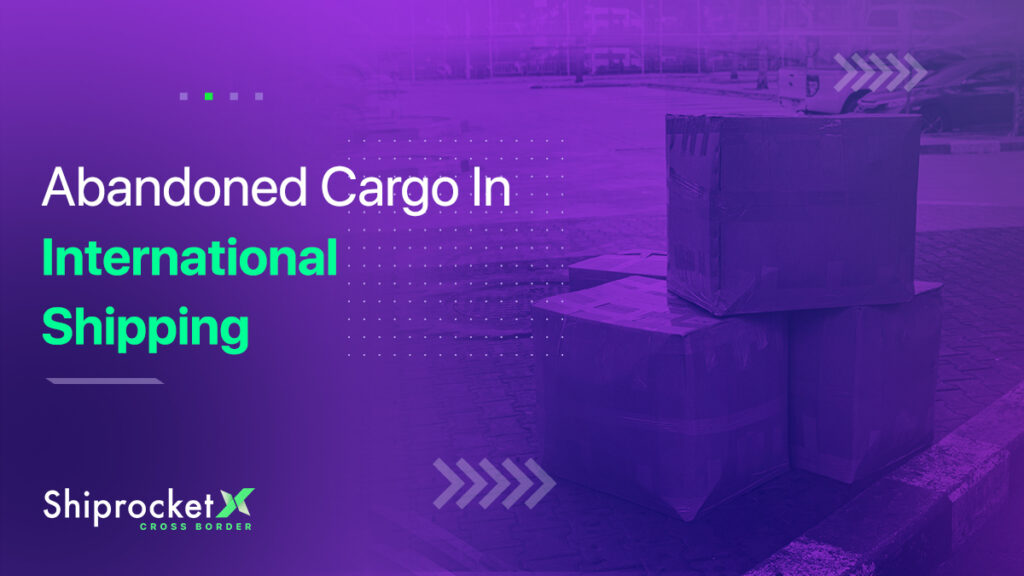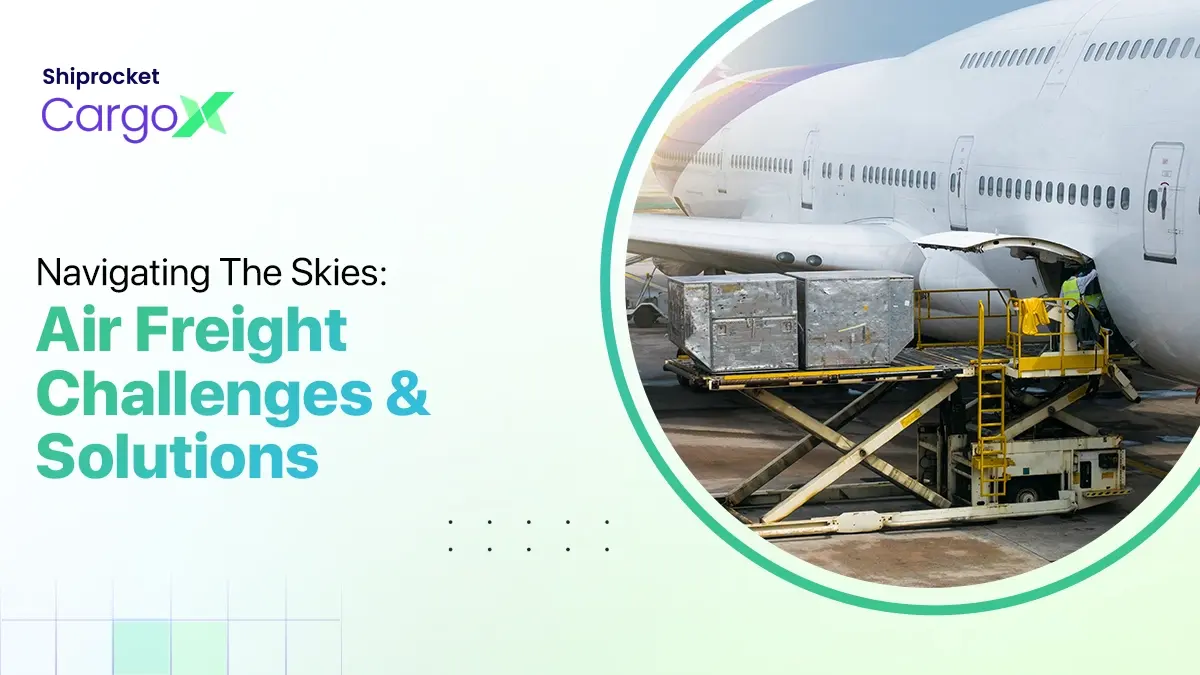What Is Abandoned Cargo In International Shipping?

What Does “Abandoned Cargo” Mean?
Cargo that has been left behind at a port with the importer (consignee) having no intention to clear it and take delivery even after a reasonable period can be called “abandoned cargo”. This also includes instances when the consignee cannot be located or identified.
What is a “reasonable period?”
This can vary depending on the country. For example, cargo is considered abandoned in India if it hasn’t been claimed for more than 30 days. This period can be as high as 90 days in other countries.
What Are The Reasons That Cargo Is Abandoned?
In the world of cargo import-export, there are several reasons for cargo abandonment, including legitimate reasons such as consignee bankruptcy, commercial disagreements, and cargo discrepancies.
For example, cargo can be rejected at the exporter’s port by denying or withholding, custom clearance of export cargo. Cargo can also be rejected at the destination port due to missing licences, rule changes, or discovering cargo on the import-ban list.
Often, the consignee refuses to pay import duties and taxes that weren’t intimated clearly while arranging the dispatch. Cargo can also be unclaimed due to conflicts or damages between the involved parties (buyer, freight forwarder, seller, or authorities).
Additionally, the reasons for abandonment also – unfortunately – include fraudulent practices such as people using it to dispose of illegal cargo or waste cargo.
Who Is Liable For Abandoned Cargo?
Several stakeholders are involved in the ocean freight process: the shipper (consignor), the carrier, the agent, and the consignee. Therefore, when a problem occurs, it could be difficult to prove where the liability rests. Essentially, it all begins with the shipper and his liabilities. So, it is best to ensure that all parties are clear about what they are – or, aren’t – responsible for, and that everything is executed according to the applicable law.
For example, should the cargo be abandoned by the consignee while overseas, the shipper would be responsible for all charges (across the length of shipment). This includes returning the cargo, selling it to another person, or even disposing of it.
Abandoned cargo presents many complications for shipping companies since they become liable for its storage fees, demurrage, port fees, costs to dispose of the goods (etc.) until the abandoned cargo stays on the port premises. Although the shipping line seeks payment of dues from the shipper/consignor or the freight forwarder, it is obvious that sorting and closing out such abandoned cargo is a cumbersome and costly process.
If a shipper, freight forwarder, or shipping line is named “the agent” in the shipping document (e.g., bill of lading), the costs/losses of the abandoned cargo would primarily affect them. Similarly, the consignee would be affected should he have made the payment (including a partial one) for the cargo.

10 Tips To Avoid Cargo Losses Due To Cargo Being Abandoned
While only the true owner of the cargo has control over its abandonment, the shipper/consignee, forwarder, or shipping line can still take early precautions to limit losses caused by abandonment and prevent conflicts on who is liable for the abandoned cargo.
- Study all contracts and paperwork for ocean services closely. Outline all exporter obligations, custom clearance of export cargo, and special/unexpected situations e.g,. the Covid pandemic.
- In cargo import-export, unless the shipper has submitted the export declaration, shipping lines mustn’t load containers onto the vessel. If not submitted, the shipper has probably not yet sold the cargo and doesn’t have a consignee, which immediately increases the charges of unclaimed (abandoned) cargo at its destination port.
- Maintain updated communication with customers. Problems faced by various supply chain stakeholders – e.g., agents, terminals, haulers – must be explained to customers so they understand that it is beyond the freight forwarders’ control.
- Shipping lines should communicate directly with the consignee and make sure they are in the loop about the booking.
- Make it clear to the shipper/consignee that they cannot abandon cargo without facing consequences such as tax duties, or fines.
- Shipping lines could demand payment in cash for ocean freight or run credit/background checks on their shipper/consignee to provide against bad debt.
- Monitor overdue containers closely and touch the customer. Remember that charges will be ongoing. If the consignee was intimated of arrival but hasn’t responded within a “reasonable period,” e.g., two weeks
- Quick action is paramount. Suitable pressure on the shipper or consignee can resolve matters quickly. Merchants will rarely cooperate once charges exceed cargo value. Check your insurers for the amount of cover available.
- To save costs, store the cargo in a bonded warehouse and unstuff it. Since common recourse for abandoned cargo includes re-exporting it, selling it to someone else, or auctioning it, you must be aware of firms that have the know-how in deposing abandoned cargo.
- Maintain proper records of notices, communications (etc.) and remind importer/exporter regularly of their contractual responsibilities. This minimises claims risk and gives you the necessary evidence when required.
Lastly, regardless of who you are and your role in the ocean-freight process, you must stay atop your game and ensure prompt action. Believing that “things will resolve themselves” and you will emerge with little or no damage from the very real, everyday problem of cargo abandonment will lead to losses. You must choose the stakeholders and partners you work with carefully. It is advised to go with reputable companies with a good track record of performance.
Conclusion: Efficient Cargo Tracking To Prevent Abandonment
Shiprocket X is a low-cost cross-border shipping solution that enables brands to ship products across 220+ countries via multiple carriers from a single place with unified tracking. This seamless unified tracking helps you track your cargo in one place. It also provides a security cover that protects your shipments against the risk of damage or loss and keeps you relieved by sending your buyers real-time tracking notifications via Email & SMS.






